French wines are complex, and that is a good thing. Picking wines for your supper club dinner party can be a crucial element of preparation. We grew up on California wines that are relatively simple. You have red and white, then 5 or 6 types of grapes and voila! The choice is simple.
Picking a French wine is more complex in that you should know about the Appellation, Chateau, terroir…Then you have to consider what foods you will be pairing your wine with. American’s, we talk about food pairings in generalities (e.g. red with beef, white with chicken). French talk about wine food parings like it is religion. I once ordered a white wine with duck in Paris and the waiter reacted as if I had insulted his mother. Better yet, listened to a group of Frenchmen argue on a train between London and Paris for 30 minutes about the best mushroom to serve avec poulet. Mon Dieu!
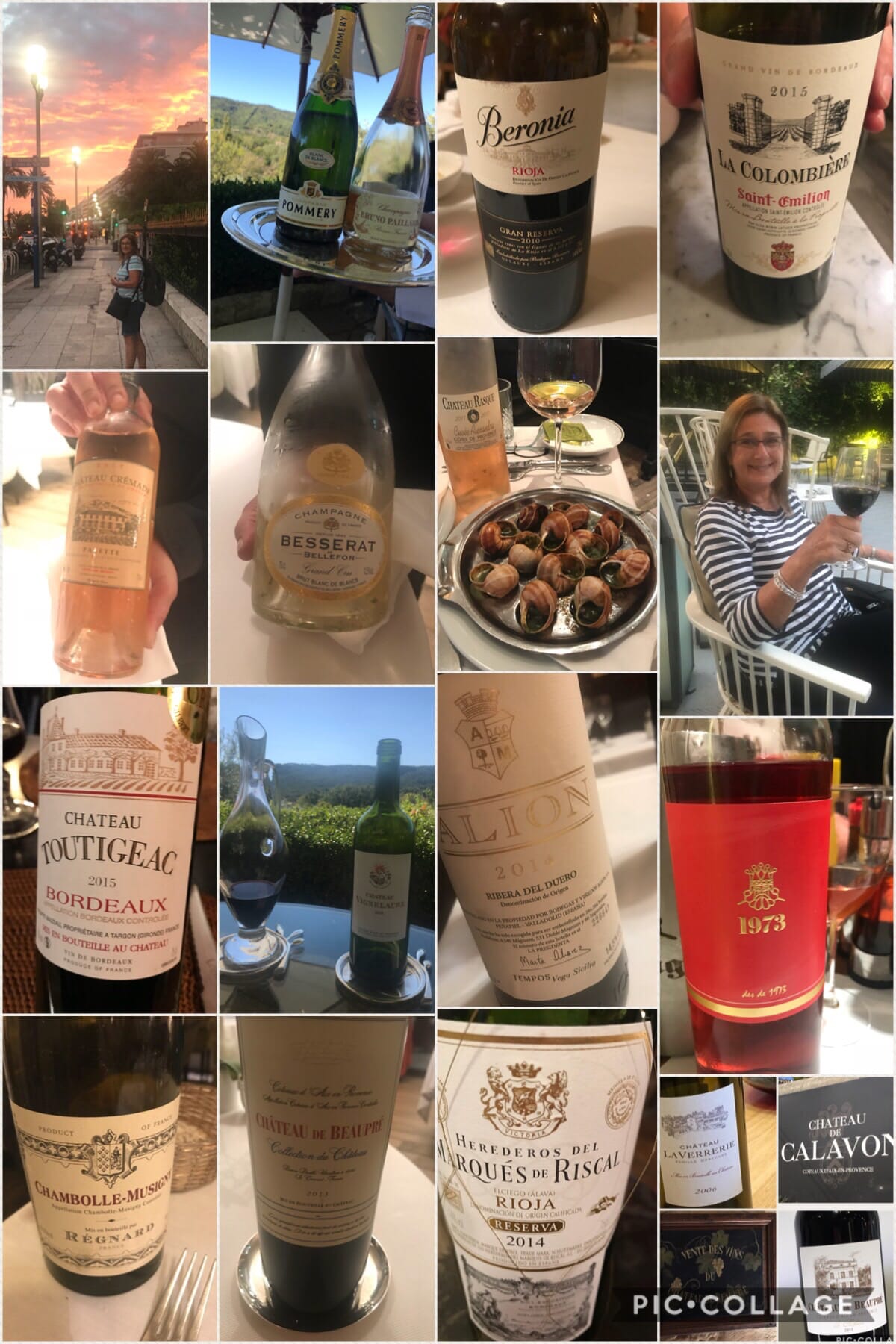
Picking a French wine, to me, is about the experience. We recently had lunch at La Bastide de Moustiers, an Alain Ducasse restaurant in the hills of Provence. After an hour and half ride through the lavender fields on the way from Aix, a sparkling wine was perfect to start. With our venison for lunch we had a delicious vin rouge from Chateau Vignelaure. I had always associated Provence with Rosé, but there are a multitude of great wines: blancs, rouges and rosés from the region. Late that same night in Nice we had wonderful Rosé as we people watched along the Promenade Les Anglais. It was a day of a multitude of experiences and wines. The wines from our trip will always be special for us as they will connect us back to the wonderful experiences we had.
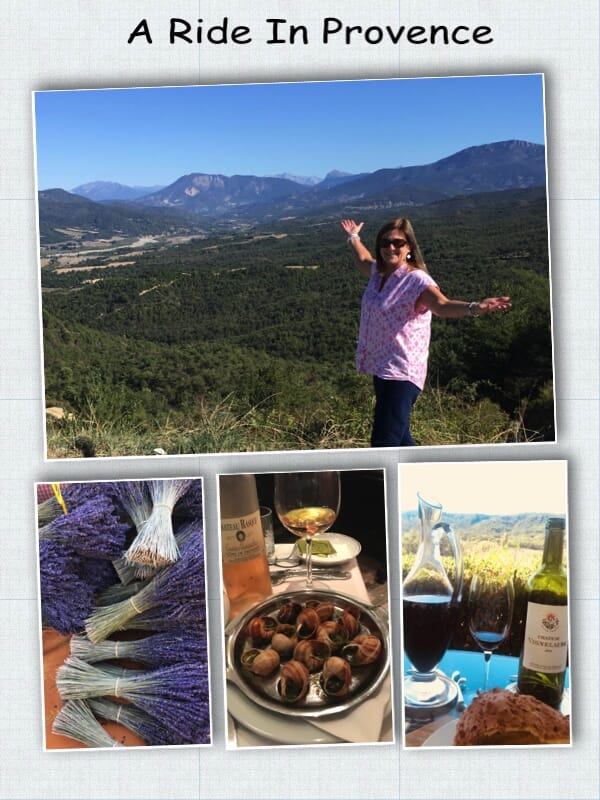
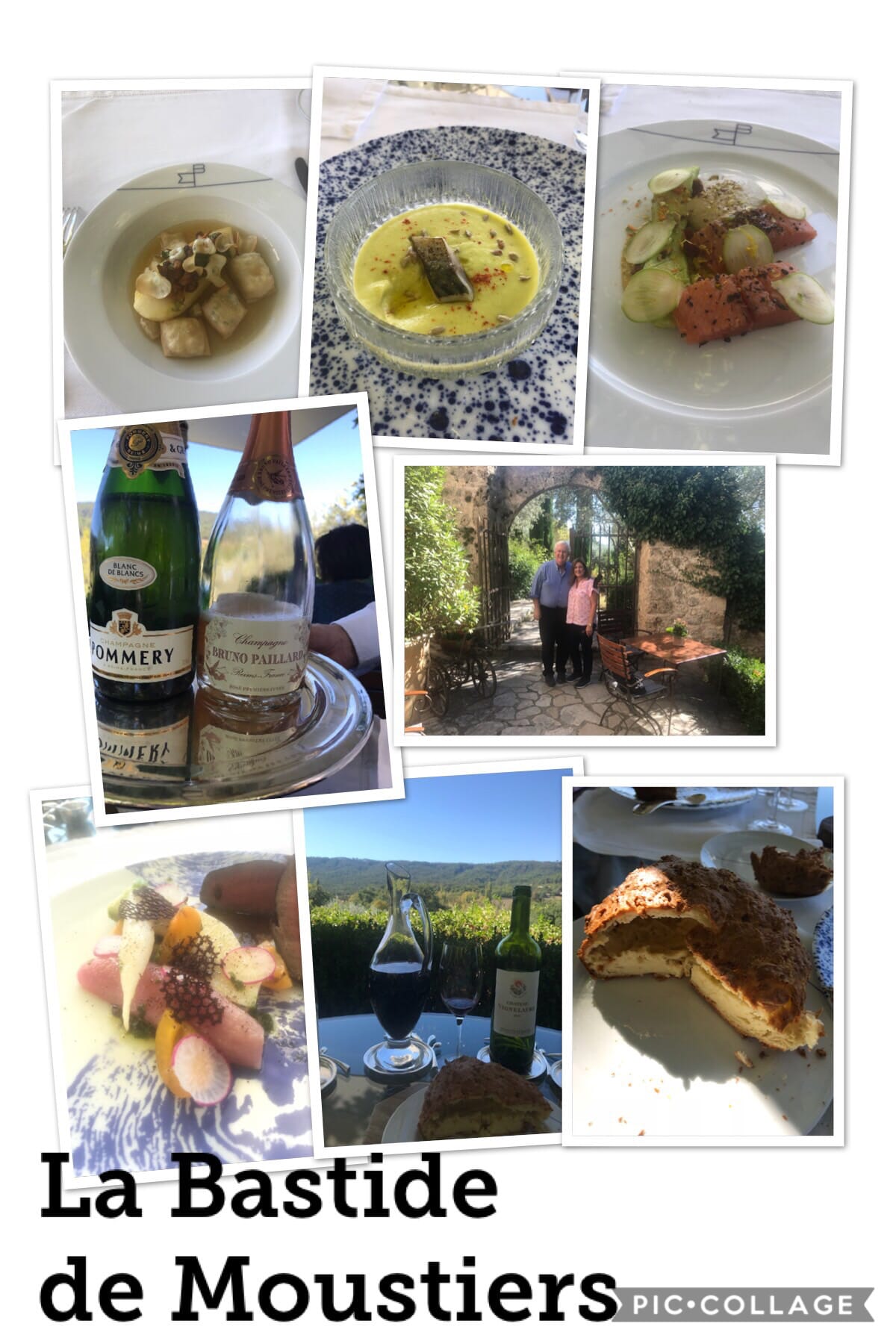
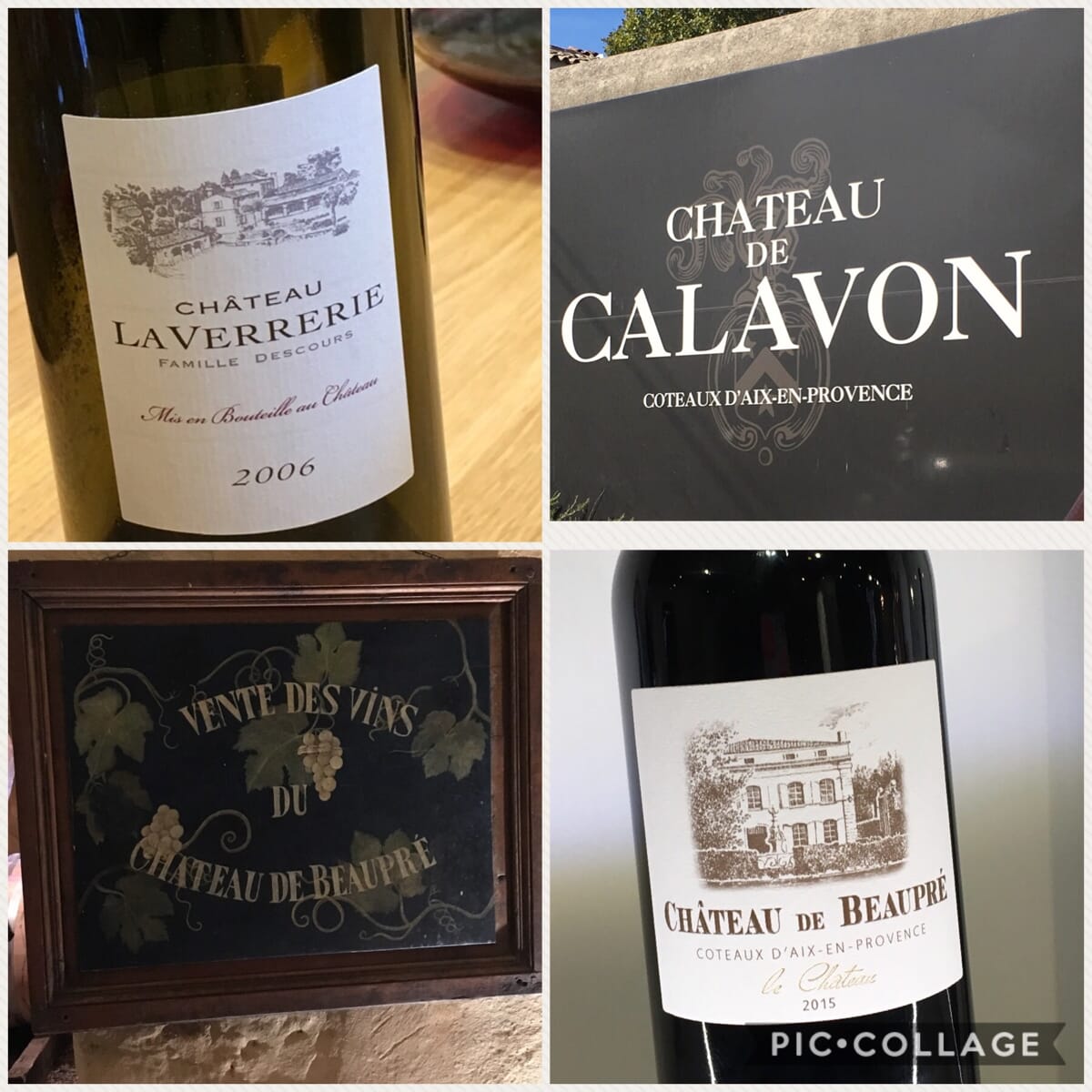
(Wine Tour Chateaus)
I did get in trouble at a vineyard in Aix. Our guide Stephan was telling us about the horrible wine blight in Europe in the mid 19thcentury. Somehow the grape phylloxera bug from America was introduced into France and much of Europe with a devastating impact on the wine industry. Genetic selection was used to overcome this horrible aphid. Vines from America with genes that were resistant to the bug were grafted to European vines and the grape crop was restored.
Here is where I got in trouble. I said: “So what you are telling me is that all French wines are GMO” (genetically modified organism). That’s when the fight began.
It reminded me of the old joke:
- A wife sits down on the couch as her husband is flipping channels on the TV and she asks: “What is on TV?” And he responds: “Dust”
- Then the fight began.
You might have thought I called the poor man’s mother a prostitute. He was offended and quite defensive. Of course, there are many arguments relative to GMO:
Against:
- They harm the environment. “It is not nice to play with mother-nature as science is creating “super weeds” that can be dangerous.
- GMO has decimated butterfly population in the US
- By the time we find out the true impact it will be too late.
- Links to cancer and allergies
- Nothing tastes better than nature
For
- Using GMO crops increases yields and help feed the world at lower cost
- Stronger crops mean less pesticide is needed
- Biotechnology can be used to make crops healthier, increase antioxidants and less fat and more flavor
- Genetic modification and selection has been going on for centuries (e.g. grapes resistant to phylloxera
The irony is that I had spent many years selling American agriculturally based products into Europe. A guaranteed way to end any business meeting was to mention GMO. That’s when the fight would begin…
At the end of the day, science hasn’t made French wines great. The experience you have while enjoying them has. 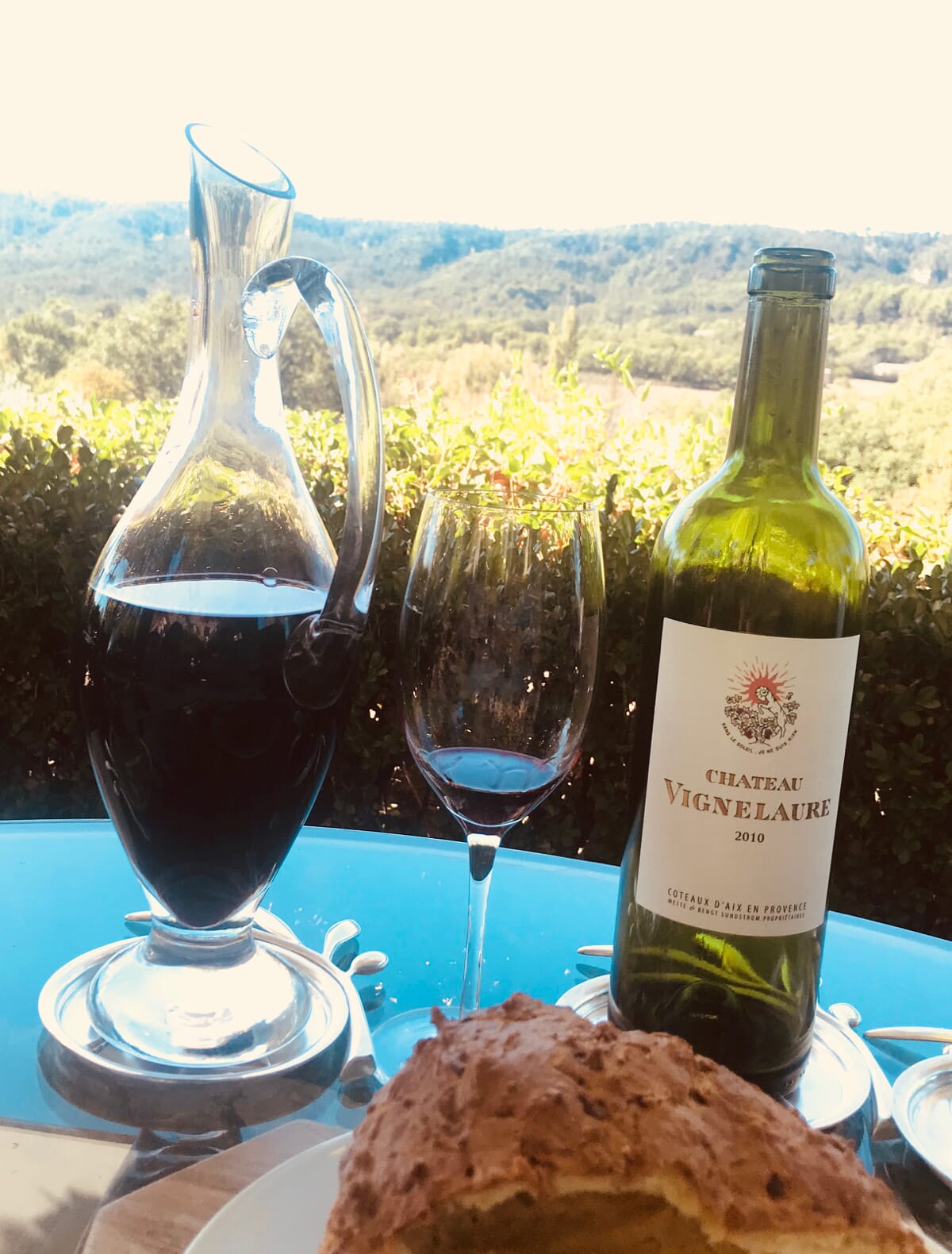


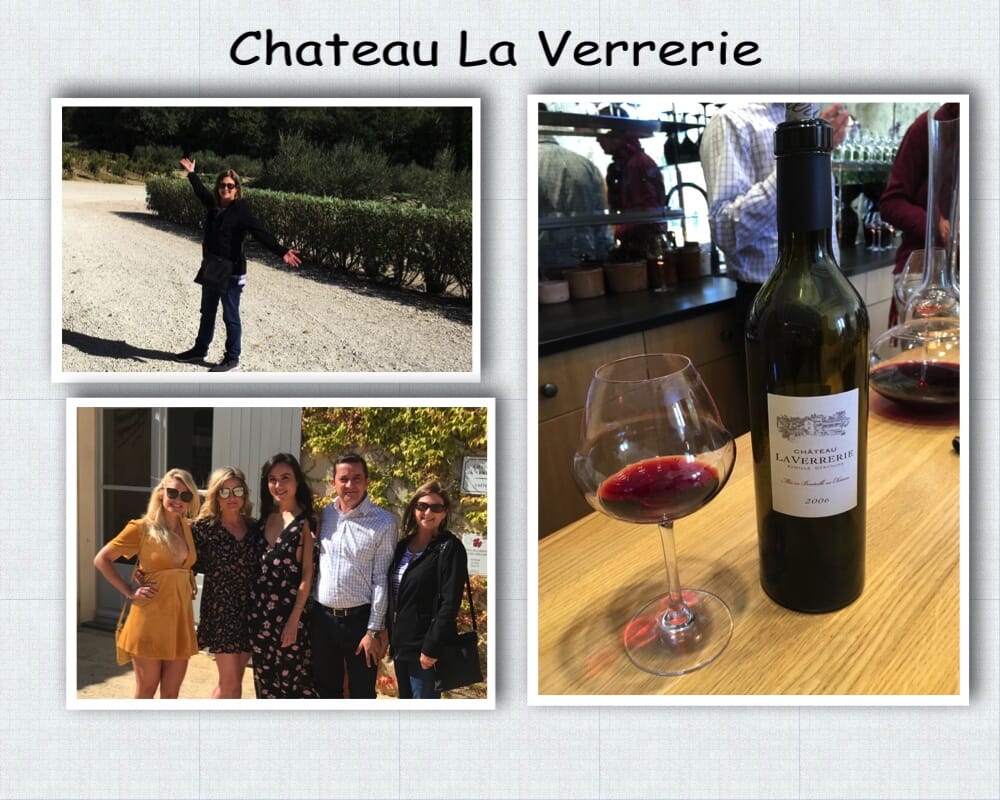 The fun is to try many wines. Find out what you like and share them with your supper club friends.
The fun is to try many wines. Find out what you like and share them with your supper club friends.
If you enjoyed this blog and similar other stories/supper club lessons follow me on Facebook and Twitter and subscribe to get future blogs at www.impromptufridaynights.com/blog and check out my book Impromptu Friday Nights a Guide to Supper Clubs. Published by Morgan James Publishing and available through most channels where books are sold.
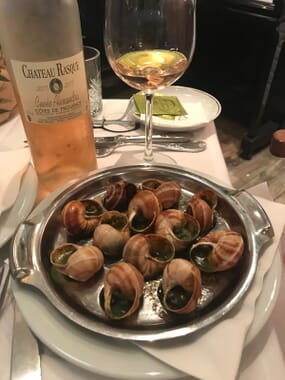
Love this post!